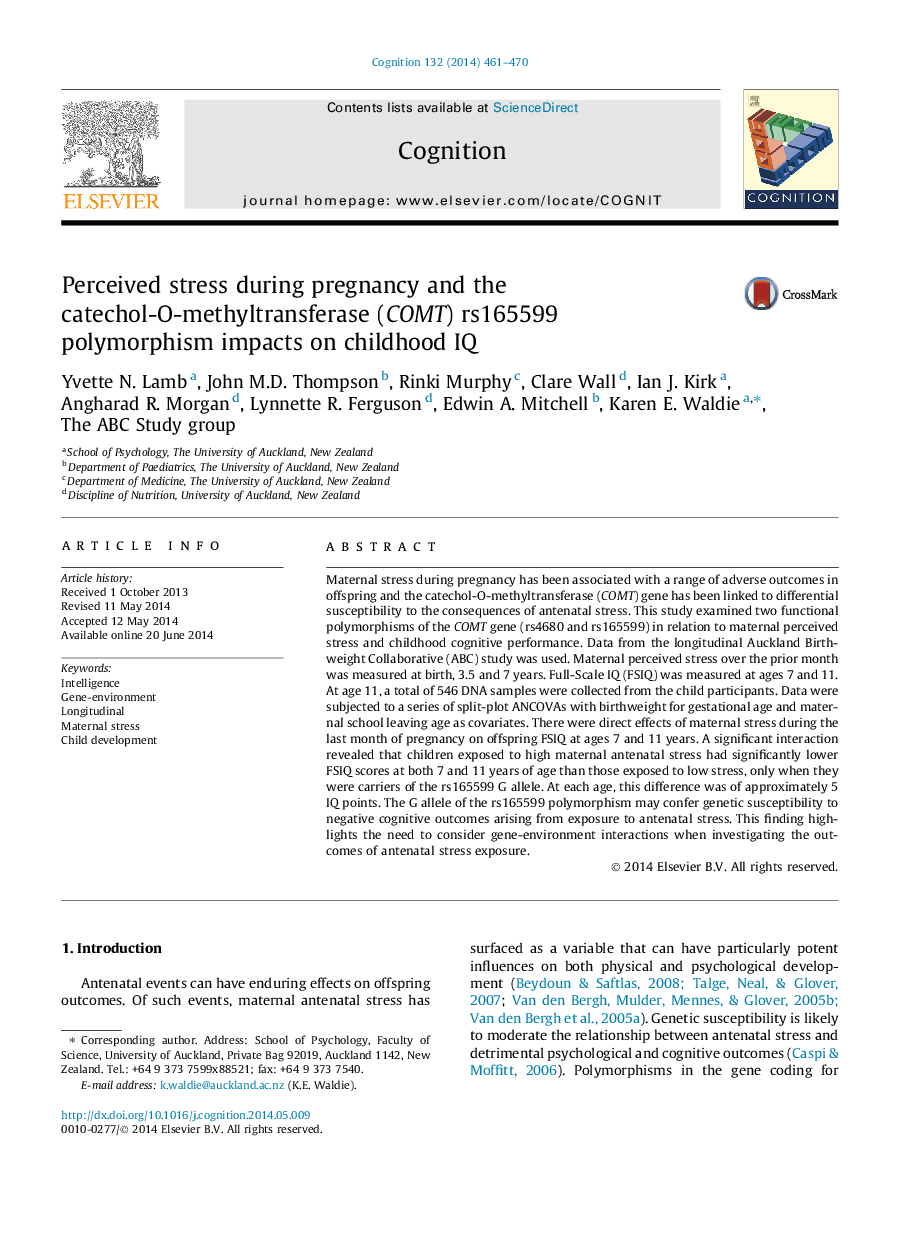| Article ID | Journal | Published Year | Pages | File Type |
|---|---|---|---|---|
| 10457536 | Cognition | 2014 | 10 Pages |
Abstract
Maternal stress during pregnancy has been associated with a range of adverse outcomes in offspring and the catechol-O-methyltransferase (COMT) gene has been linked to differential susceptibility to the consequences of antenatal stress. This study examined two functional polymorphisms of the COMT gene (rs4680 and rs165599) in relation to maternal perceived stress and childhood cognitive performance. Data from the longitudinal Auckland Birthweight Collaborative (ABC) study was used. Maternal perceived stress over the prior month was measured at birth, 3.5 and 7Â years. Full-Scale IQ (FSIQ) was measured at ages 7 and 11. At age 11, a total of 546 DNA samples were collected from the child participants. Data were subjected to a series of split-plot ANCOVAs with birthweight for gestational age and maternal school leaving age as covariates. There were direct effects of maternal stress during the last month of pregnancy on offspring FSIQ at ages 7 and 11Â years. A significant interaction revealed that children exposed to high maternal antenatal stress had significantly lower FSIQ scores at both 7 and 11Â years of age than those exposed to low stress, only when they were carriers of the rs165599 G allele. At each age, this difference was of approximately 5 IQ points. The G allele of the rs165599 polymorphism may confer genetic susceptibility to negative cognitive outcomes arising from exposure to antenatal stress. This finding highlights the need to consider gene-environment interactions when investigating the outcomes of antenatal stress exposure.
Related Topics
Life Sciences
Neuroscience
Cognitive Neuroscience
Authors
Yvette N. Lamb, John M.D. Thompson, Rinki Murphy, Clare Wall, Ian J. Kirk, Angharad R. Morgan, Lynnette R. Ferguson, Edwin A. Mitchell, Karen E. Waldie, The ABC Study group The ABC Study group,
